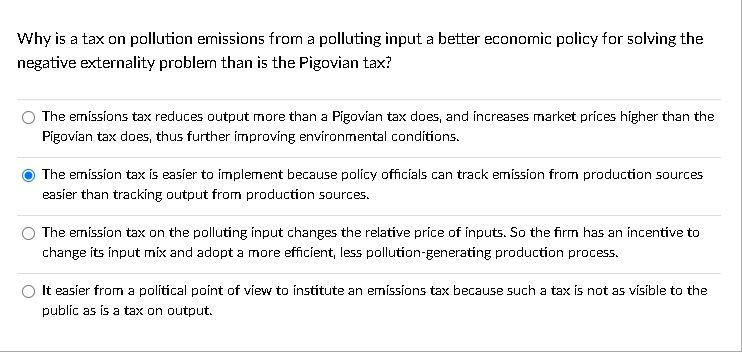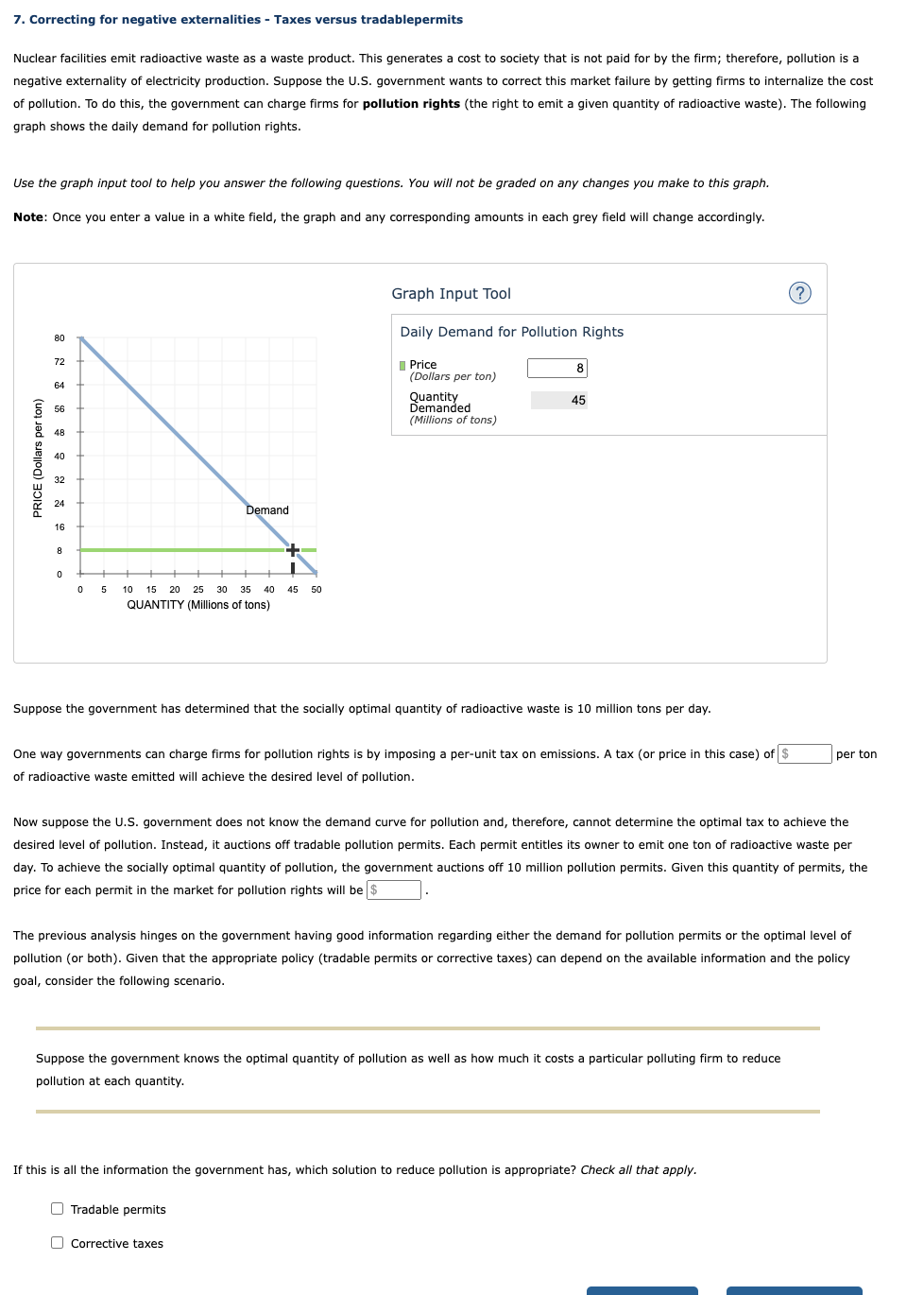In an era where the looming crisis of climate change threatens our planet’s well-being, the onus of environmental stewardship falls upon every individual and institution. Governments around the world have risen to this challenge, implementing various strategies to curb the detrimental effects of human activities on the environment. Among these, pollution charges stand out as a particularly effective and transformative mechanism.

Image: www.chegg.com
Defining Pollution Charges: A Tax with Environmental Purpose
In essence, a pollution charge is a form of tax levied against entities responsible for emitting pollutants into the environment. Unlike traditional taxes that primarily aim to generate revenue, pollution charges carry a specific purpose – to disincentivize pollution and promote sustainable practices. By imposing a monetary penalty on emitting harmful emissions into the air, water, or soil, they create a compelling economic incentive for businesses and individuals to reduce their environmental footprint.
The underlying rationale behind pollution charges is simple yet profound. By making polluting more expensive than environmentally friendly alternatives, businesses and individuals are encouraged to find innovative solutions that minimize their environmental impact. This, in turn, leads to a cleaner environment for all and paves the way for a more sustainable future.
Real-World Impact: Success Stories of Pollution Charges
The effectiveness of pollution charges is not merely theoretical; numerous countries worldwide have reaped the benefits of implementing such mechanisms. In London, for instance, the congestion charge introduced in 2003 has drastically reduced traffic congestion and improved air quality, setting an example for similar schemes in other cities globally.
Beyond the realm of urban areas, the success stories continue. The sulfur dioxide emissions trading program in the United States, launched in the 1990s, led to a significant decrease in acid rain, protecting ecosystems and human health alike.
The Economic Benefits of Pollution Charges: Beyond Environmental Gains
In addition to their environmental benefits, pollution charges can also yield surprising economic advantages. By creating a market for emissions reduction, they spur innovation and technological advancements in environmental technologies. This, in turn, fosters new industries and creates employment opportunities in clean energy and sustainability sectors.
Moreover, by internalizing the costs of pollution, which were once externalized and borne by society, pollution charges facilitate a more accurate pricing of goods and services. This enables consumers to make informed choices that account for the true environmental costs associated with production and consumption.

Image: www.chegg.com
A Pollution Charge Is A Form Of Tax Imposed On
Conclusion: A Call to Empowered Action
Pollution charges are not just economic tools; they are transformative instruments that empower individuals and businesses to become active participants in environmental protection. By internalizing the costs of pollution, creating incentives for sustainable practices, and fostering innovation in environmental technologies, they represent a vital step toward a greener, healthier future.
As individuals and organizations, we have a shared responsibility to leverage the power of pollution charges to create a sustainable world for generations to come. Let us heed the call for empowered action and embrace this effective mechanism to safeguard our environment and ensure a vibrant future for all.
